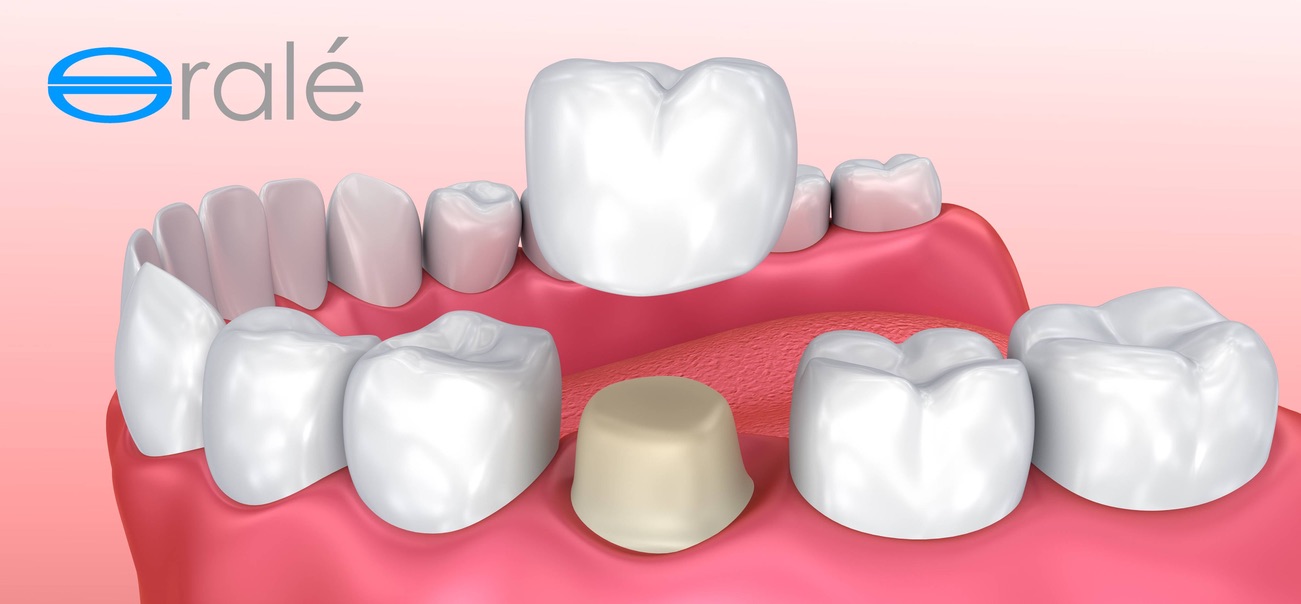CROWNS
When preparing for a crown a tooth is reduced to a "stump" and then covered with either a porcelain, ceramic (such as Emax, Zirconia), metal, composite, or a porcelain/metal crown.

Porcelain and metal crowns are made by hand, a ceramic crown is milled by a robot.
If there isn't enough tooth structure to support a crown, a post may be needed. A post is placed in the tooth canal, which first must be root treated (RCT). On top of the post is built a "core" which supports the crown.
Crowns require a substantial amount of the tooth structure to be removed. A partial crown that only covers the biting surface and the visible face of the tooth may be a better option as it conserves more of the tooth. Crowns are also placed on implants.
Porcelain and ceramic crowns have no metal and therefore can be more aesthetic, especially if the gum recedes after a number of years and exposes the margin. On the back teeth a metal crown (Usually a gold alloy) is a very good option as it requires less tooth reduction because it can be made thinner. It also wears down at a rate more like that of natural teeth which is better for the opposing tooth. The price of a metal crown depends on the amount of precious or semi-precious metal used in the alloy.
Crowns usually take two visits as it takes up to two weeks to get made. In the meantime you will have a temporary plastic crown.
We charge only €550 for a Zirconia crown. This is one of the best prices in Ireland!